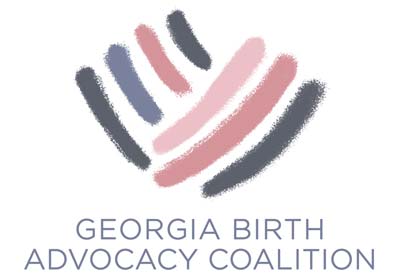8 Shocking Statistics About Abuse and Mistreatment of People in Labor
The maternal mortality rate in the United States is skyrocketing, and Georgia is the most dangerous place in the country to give birth. Our care system is so inadequate that birthing people are less likely to die giving birth in Iraq, Iran, and 100 other nations than they are in Georgia. Maternal mortality doesn’t happen in a vacuum. In addition to the hundreds of women who die giving birth each year, 50,000 more suffer catastrophic complications. 1 in 3 women say their births were traumatic, and 16% develop PTSD after giving birth.
Our maternity care system is collapsing because it does not prioritize the needs of birthing people and their babies. Women must give birth in healthcare systems where abuse is common and normalized, and women who speak out against abuse are stigmatized. When doctors are accustomed to ignoring the wishes of women, when they vehemently defend their right to do so, the results are predictable: a care system that ignores women even when their lives hang in the balance.
Abuse during birth is part of the larger misogynist culture that allows women to needlessly suffer and die. Maternal mortality is preventable. So too are most childbirth complications. While European nations have rendered maternal mortality almost nonexistent and created a nurturing, supportive birthing culture, the U.S. continues to abuse people during the vulnerable and life-changing moments surrounding birth. Knowing the vast scope of the problem is the first step to preventing it.
28% of women who give birth in hospitals report being mistreated. Typical forms of mistreatment include being shouted at or threatened. For some women, however, the mistreatment is more serious, and may include being restrained, physically abused, or forced into a medical intervention the woman declines. These latter forms of abuse are illegal, and may qualify as assaults.
Race is a significant predictor of how women are treated in labor. Birthing people are less likely to be abused if they are white.
Birthing people who opt out of certain medical procedures are more likely to be mistreated or abused during labor. Yet research also shows that declining certain procedures may be the best decision a woman can make. The risk of death after a C-section is five times higher than after a vaginal birth. Episiotomies remain routine in some hospitals, despite greatly increasing the risk of serious tears and other complications. Ninety percent of people giving birth receive at least one medically unnecessary birth intervention.
Fifty-five percent of birth workers have seen a doctor or other care provider perform a medical procedure even when the birthing person said no. Eighty-eight percent have seen a care provider perform a procedure without asking permission. Informed consent is a Constitutional right, and being pregnant does not remove this right. Moreover, when pregnant people do not get to participate in their own care, birth outcomes are worse. So too are rates of trauma and PTSD.
Thirty-three percent of birth workers say they have heard care providers use racist language in the delivery room. Black women are three to four times more likely than white women to die from birth and pregnancy-related causes. Numerous studies have documented that the reason for this is not race, but racism. Even wealthy and highly educated black women die at much higher rates than white women.
324,000 pregnant people are abused by their partners each year. Homicide is the leading cause of death among pregnant people.
Twelve percent of women report being forced into birthing interventions which they declined. Among those who had instrumental deliveries, the figure is 24%.
Twenty-one percent of Black women say they experienced racism when hospitalized for birth or pregnancy complications. Nineteen percent of Latinas report experiencing racism from care providers. Numerous studies have documented a pervasive pattern of racism in medical systems. One study found that half of medical residents believed racist stereotypes about black patients.
Pregnant people who want to protect their rights and document abuse should consider recording their births. To learn more about recording your birth in Georgia, click here. To file a complaint against a doctor or other provider, click here. Learn more about your childbirth and pregnancy rights here.

